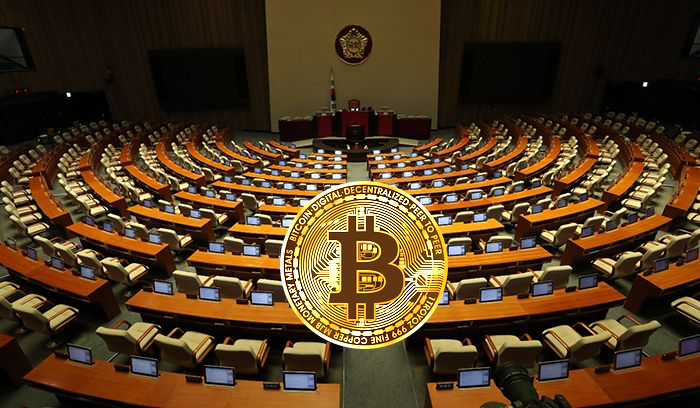On November 2, the Financial Services Commission announced an amendment to the Enforcement Decree of the ‘Law on Reporting and Use of Specific Financial Transaction Information’. The Financial Services Commission drew a line that “the enforcement of the law does not mean institutionalizing virtual assets (cryptocurrency). It is pointed out that there is nothing very different from the government’s existing position on virtual assets such as requiring real-name verified account and ban of ICO(Initial Coin Offering).
In the international discussions on virtual assets or, digital assets, it is expected that Korea should start enacting the business rights law for virtual assets in earnest along with criticism that Korea is still on the periphery.
◆ Scope of Virtual Asset Service Providers(VASPs)
The law stipulates that VASP is ‘a person who conducts business such as selling, buying, exchanging, transferring, storing, managing, brokering, and mediating virtual assets. The Financial Services Commission said in the enforcement decree that it did not add a separate action (business entity) related to virtual assets and limited the scope of the law to major VASPs.
Examples of major VASPs include ▲ virtual asset traders ▲ virtual asset storage managers ▲ virtual asset wallet service providers. The case of simply providing a P2P transaction platform, wallet service platform, and hardware wallet is not included in the virtual asset services .
A VASP is a business operator that opens and operates a platform to mediate or mediate virtual currency trading and exchange. It is commonly used as a virtual asset handling business, exchange business, and exchange.
Virtual asset traders may be excluded if they simply provide a place to post an offer to sell or buy virtual assets, or simply provide advice or technology for virtual asset trading.
A virtual asset storage management business operator is a business operator that stores and manages virtual assets for others. It is commonly used as a virtual asset custody and consignment business. It refers to a business operator that performs the storage and management of virtual assets as its main business under the law.
However, if a business operator provides only a program that stores and stores personal cryptographic keys, and does not engage in the transfer, storage, and exchange of virtual assets without control over personal cryptographic keys, it may be excluded from the virtual asset storage management business.
Virtual asset wallet service providers are generally providers that provide storage, management and transfer services of virtual assets. It is commonly used as a centralized wallet service, trust type, wallet service, and wallet service. It refers to a business operator that performs the transfer of virtual assets and storage and management of virtual assets under the law.
◆ Range of virtual assets allowed to be handled
The law defined virtual assets as electronic tokens that can be transferred with economic value. Distributed ledger-based identification (DID) that cannot be exchanged for currency or goods is not a virtual asset.
In the enforcement decree, prepaid cards, mobile gift certificates, and electronic bonds will be additionally excluded from virtual assets. Virtual assets, such as dark coins, which have a high risk of preventing money laundering due to difficulty in understanding transaction details, will be prohibited from being handled by VASPs. A prime example of Dark Coin is Monero, which has stealth technology that makes it impossible to track records between traders.
◆ Criteria for issuing real name verified deposit and withdrawal accounts (hereinafter, real name accounts)
In order to enhance the transparency of virtual asset transactions, the law mandated financial transactions through real-name accounts for virtual asset business operators. Five requirements were established in the enforcement ordinance related to the criteria for initiating real-name accounts.
First, customer deposits must be kept separate. Second, it is necessary to obtain information security management system (ISMS) certification. Third, it must not meet the requirements for non-acceptance of reports stipulated in Article 7 (3) 3 and 4 of the law. Fourth, the customer’s transaction details should be kept separate. Fifth, financial companies, etc., should identify, analyze, and evaluate the money laundering risks of virtual asset providers.
The Financial Information Analysis Institute (FIU) plans to stipulate exceptions to the issuance of virtual asset businesses that do not need real-name accounts, such as no deposit due to no exchange between legal currency and virtual assets.
Even with exceptions, VASPs must report to the FIU and fulfill their anti-money laundering obligations.
◆ Targets and standards of information provision when moving virtual assets
When transferring a virtual asset, the law imposes an obligation for the VASPs in charge of transmitting the transfer-related information to the recipient. The enforcement decree stipulates the target and standards for information provision when transferring virtual assets (Travel rule).
Travel rules will be applied on March 25, 2022, when one year has passed since the enforcement of the law. In order to establish an information sharing system among VASPs, the enforcement period of the law will be delayed for one year in consideration of the need for a sufficient period for the industry to autonomously introduce a common solution.
When transferring virtual assets, the standard amount is 1 million won or more. When the conversion amount is calculated according to the FIU notification, the travel rule applies to the transfer of virtual assets worth 1 million won or more.
The Travel Rule does not apply to transactions between individuals, and will only be applied when a VASPs performs transmission or receipt.
◆Procedures and methods for reporting
The filing and notification will be carried out by the Financial Information Analysis Institute (FIU). For specific forms and procedures related to reporting, the “Virtual Asset Service Provider Reporting Manual” will be distributed.
The legislative notice is held for 40 days from November 3 to December 14, and if there is an opinion on the enactment of the enforcement ordinance, an opinion can be submitted during that period.
Translate by Young Hwang




